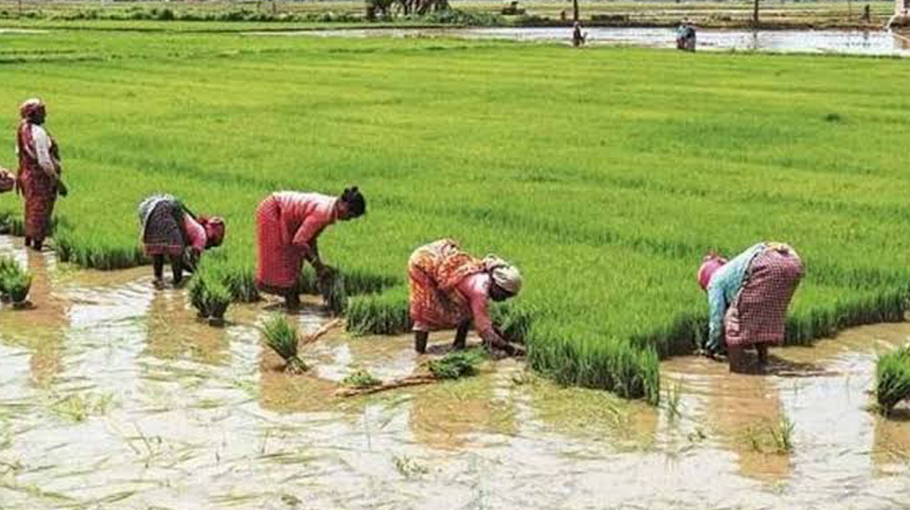Female farm labourers face wage inequality

The contribution of women in agriculture is not new but the role of women in sustainable agriculture is considered to be the most important. Women have also made a huge contribution to the success of the agricultural sector in Bangladesh, but sadly, there is no formal recognition of that contribution.
According to the latest data from the government's Agricultural Information Service, 45.6 percent of the work done by women in agriculture is unpaid. In addition, in the case of the remaining 54.4 percent, the remuneration they get is much less than the market price.
In many cases, they are forced to work for nominal wages due to family financial difficulties.
Alaya Begum, a mother of three children, plays the lead role in one such film. Husband Taslim Mamud was a rickshaw puller, who got injured in an accident and now unable to go to work. The responsibility of the family is on her shoulders. She has to go out to work early in the morning. First of all she started working in the field. She works as a farm laborer, returning at 5 p.m. She earns only 200 taka by working equal to men all day. A male laborer doing the same job gets a wage of Tk 450.
This picture can be seen in Bogulagari Ward No. 4 of Jaldhaka Upazila of Nilphamari.
Not only Alea Begum. Ankhi Rani, Kamala Devi, Maya Roy, Laili Begmara appeared in the party where there is work. They are starting from raising Boro paddy seed beds to clearing the wet soil and planting boro paddy seedlings. Even though they work equally with the male agricultural workers of the area, they get much less wages than them. They have been doing agricultural work in this region for years, giving in to the struggle of life even if they get less.
Aleya Begum, a female agricultural worker, said, 'In the field, we work at the same level as men, but our wages are lower than theirs. You have to work continuously from eight in the morning to five in the afternoon. If you talk to the land owners about this, they threaten to bring workers from other villages to work.'
She also said, I have two sons, one daughter. The girl used to study but can't do it anymore. Landlords think that male laborers work more than us. She mentioned that they do not get any benefit. No one has helped with this. We want everyone to be aware of this. Everyone stand by us.'
Ankhi Rani, Kamala Devi, Maya Roy, Laili Begmara were placed in the same race. A female agricultural worker earns at least Tk 24 thousand less than a male due to wage inequality and less work opportunities in return for remuneration.
Women agricultural workers are subjected to wage discrimination, which is a major obstacle to women's economic empowerment.
The Agricultural Labor Ordinance 1984 mentions the minimum wages of both men and women at 3.24 kilograms of rice or equivalent, which is not in line with the current market rates. It is very important to modernize the Agricultural Labor Ordinance and re-determine the equal wages of both men and women.
In a conversation at Jaldhaka Upazila Agriculture Officer's office, Upazila Agriculture Officer Sumon Ahmed said that 80 percent of the people of the upazila are dependent on agriculture. There are many women agricultural workers. Many women are doing agriculture along with men. Many are cultivating their own land and producing crops. Not only male farmers, but all farmers are supported by agriculture-friendly government.



